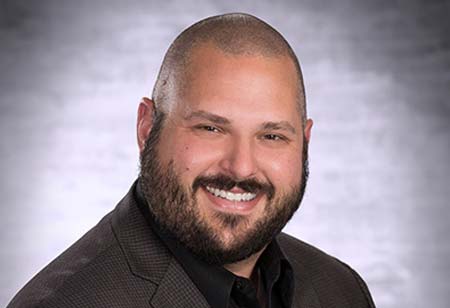In the late 1990s and early 2000s, Phil Jackson, likely the most celebrated professional basketball coach of all time, revolutionized the game through his embrace of the Triangle Offense. Coach Jackson didn't create this offense, but he employed it masterfully as a leader and coach to win eleven NBA championships in his storied career.
Why start a discussion by mentioning Coach Jackson and his offense? In today’s insurance industry, the Triangle Offense embodies several key tenets that can and should be employed by insurance leaders and executives to aid their teams in having the same level of success that Coach Jackson enjoyed.
The first and most important tenet of the Triangle Offense is that the offense adapts to the defense rather than trying to force the inverse. The current insurance market is defined by disruption. Artificial intelligence, machine learning, insuretech, data and analytics, to name a few trends, are driving fundamental changes in how carriers analyze and price risk, participate in the market, and engage customers. Additionally, new weather patterns and the unpredictability of judicial and legislative actions are creating a greater disparity in industry performance. Understanding that very few carriers have the size and leverage to lead their respective markets, one must craft strategies and practices that can quickly adapt to market conditions and competition that are now changing faster than ever. This is no small feat for an industry with a reputation for a glacially slow pace of change, but building strategies around speed and adaptability should be at the top of every leader’s agenda.
Leaders who offer a safe psychological space and communicate effectively empower their team members to be most successful
A second fundamental tenet of the Triangle Offense is that it maximizes every player's strengths while diminishing none. If one wants to follow the basketball metaphor, one could consider an insurance company's core as a team and the key players as underwriting, claims, risk control/ service, IT, and agency partners. Each carrier is going to have different levels of talent and expertise at each of these positions, and while leaning into these strengths will help maximize a carrier’s success in the short term, long-term sustainability is going to require the ability of all team members to adapt to changing market considerations.
Take, for example, what is widely considered to be today’s most prominent industry trend – the use of AI. Today, it certainly seems like the most focused teammate for the application of AI is underwriting. Many carriers are focusing on improving the speed of decision-making and the accuracy of price. Those who achieve early success in developing AI for these processes may experience short-term competitive advantages. However, many carriers and vendors are working to succeed with this technology, and this will ultimately dilute the competitive advantage. Those who will see long-term success must not only pursue the use of AI for underwriting but also for all of their team members. One cannot ignore pursuing, at least conceptually, other advanced capabilities in all arenas, such as speed of claims adjustment or delivering risk control services on a real-time basis to policyholders based on need.
It will be important that carriers are poised to be fast followers. This is especially challenging for smaller to mid-size carriers who may only be able to focus on a handful of deliverables at a time. They must find ways to understand the impacts of market disruptions beyond their focus and be willing to pivot their focus quickly, if necessary, to not fall too far behind when disruptions are significant.
The final tenet that can be learned from the Triangle Offense is trust. The Triangle Offense requires that all team members trust that the others will execute at the highest level. This is easily the most challenging of all the tenats, as finding the right market disruptors requires some degree of failure. To build trust, a carrier must have two characteristics: psychological safety and communication.
Psychological safety is necessary for a carrier to take the risk to pursue or pivot some of these complex technologies. Without this quality, it may never be willing to even begin the process and, therefore, be left behind its competitors as disruption pushes it under. Communication will help alleviate challenges with change management that inevitably will present as one adapts and rolls out new technology. This is especially true when one considers that a carrier’s agency partners are key team members. Often, a carrier’s agency partners will not have the same level of insight that internal partners may have. In the Triangle Offense, as in insurance, if team members don’t believe that one is executing as expected, the system will break down and fail.
To build this level of trust requires a great leader to act as the coach. Leaders who offer a safe psychological space and communicate effectively empower their team members to be most successful. Coach Jackson was known not only for his system but also for his leadership skills and for helping his team buy into his vision. Insurance leaders at all levels should focus on how they share their visions with their teams and how they help their team members understand their roles in the organization's success. This is true regardless of whether the leader is at the local, regional, or executive level.
While nothing here is easy, now is the time to recognize and adapt to disruptions in the insurance industry. Change is only going to accelerate, and the industry is on the precipice of significant overhaul. If one wants to continue being successful, Coach Jackson and the Triangle offense may offer insights on how to more effectively lead one’s team.


